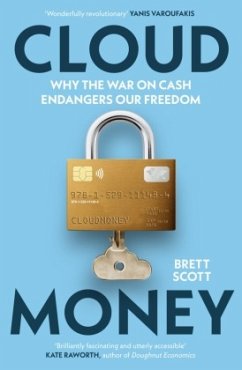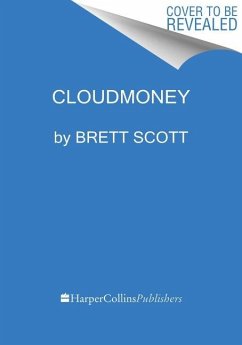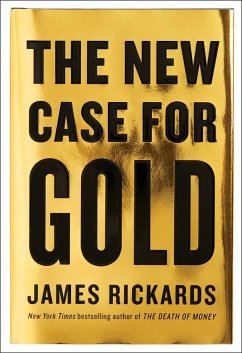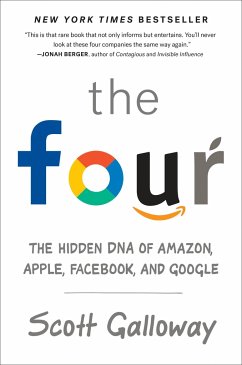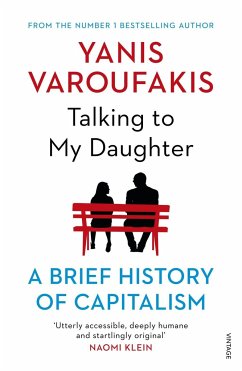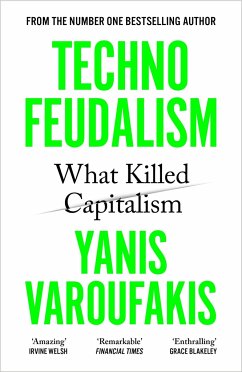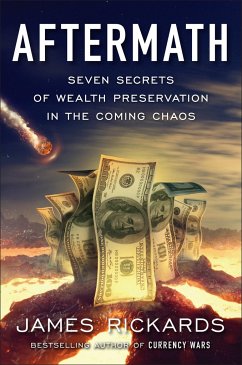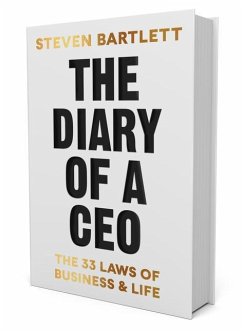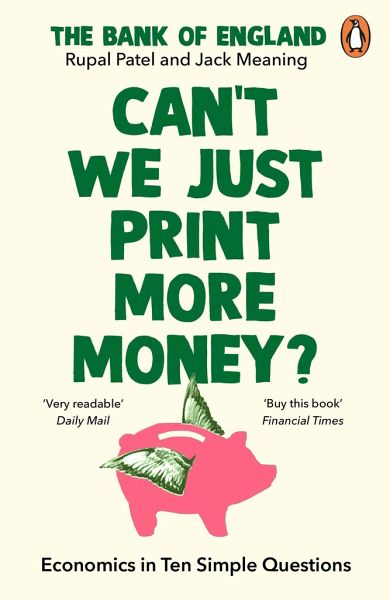
Can't We Just Print More Money?
Economics in Ten Simple Questions

PAYBACK Punkte
5 °P sammeln!
'If you feel you should understand how economists think but have no idea where to start, this book is the answer' Financial TimesWhy are all my clothes made in Asia?How do I get a pay-rise?And what even is money?Join Britain's most venerable financial institution for a rip-roaring crash-course on economics. From financial crises to Freddo prices, it will help you make sense of your job, your life and maybe your world._'A well-written treat . . . Using examples including the Bank of England canteen, The Simpsons and Beanie Babies, the authors encourage us all to understand, and even challenge, ...
'If you feel you should understand how economists think but have no idea where to start, this book is the answer' Financial Times
Why are all my clothes made in Asia?
How do I get a pay-rise?
And what even is money?
Join Britain's most venerable financial institution for a rip-roaring crash-course on economics. From financial crises to Freddo prices, it will help you make sense of your job, your life and maybe your world.
_
'A well-written treat . . . Using examples including the Bank of England canteen, The Simpsons and Beanie Babies, the authors encourage us all to understand, and even challenge, what economists do' Professor David Spiegelhalter, author of The Art of Statistics
'A well-timed attempt to show the public what goes on inside the Bank of England - and familiarise them with some basic economic concepts . . . Punctuated with jaunty anecdotes and neat examples' Guardian
'An entertaining and essential read at a time when understanding how our money, governments and banks interact has never felt more important' Laura Whateley, author of Money: A User's Guide
Why are all my clothes made in Asia?
How do I get a pay-rise?
And what even is money?
Join Britain's most venerable financial institution for a rip-roaring crash-course on economics. From financial crises to Freddo prices, it will help you make sense of your job, your life and maybe your world.
_
'A well-written treat . . . Using examples including the Bank of England canteen, The Simpsons and Beanie Babies, the authors encourage us all to understand, and even challenge, what economists do' Professor David Spiegelhalter, author of The Art of Statistics
'A well-timed attempt to show the public what goes on inside the Bank of England - and familiarise them with some basic economic concepts . . . Punctuated with jaunty anecdotes and neat examples' Guardian
'An entertaining and essential read at a time when understanding how our money, governments and banks interact has never felt more important' Laura Whateley, author of Money: A User's Guide




